Caroline King
Trauma Therapy
Welcome to Caroline King Trauma Therapy based in Hythe, Kent. Caroline provides a professional, remote service for successful women struggling with the intense pressures of life such as childbirth, grief, menopause, relationships and corporate careers. Caroline provides expert trauma therapy for clients with over-active nervous systems and severe emotional dysregulation.
- Polyvagal therapy and neuro-scientific practices
- Anxiety & PTSD
- Depression, anger and panic attacks
Please contact me directly to discuss your needs.

Polyvagal Trauma Therapy
Is your nervous system working over-time?
Our bodies hold our stories, our experiences and our traumas.
From childbirth to loss, grief, or even fast-paced working environments – women face a huge number of biological and psychological events in their lifetimes that can drastically impact the nervous system.
This can lead to very strong emotions, irritability, fearfulness, anxiety and depression that interrupt our quality of life.
If you feel burnt-out, frazzled, tired, irritable, anxious or constantly “wired” your nervous system could be in over-drive from trauma or stress.
Trauma has a habit of permanently living inside our movements, postures, tissues, fascia, muscles, organs, gut, cells, emotions and behaviours. To feel better, the body has to let go of stored trauma.
As a qualified psychotherapist I am trained and experienced in using a tailored “brain-body” approach to trauma healing. This is not just talking therapy, yoga or mindfulness – it is a nuanced and compassionate “retuning” of your nervous system.
If you can’t remember that last time you felt calm or relaxed, please feel welcome to get in touch and request a call back.

Polyvagal trauma therapy is a therapeutic approach developed by Dr. Stephen Porges that focuses on understanding and regulating the autonomic nervous system, specifically the vagus nerve, to promote emotional regulation and overall well-being.
This innovative therapy has shown particular promise in helping women navigate various mental health challenges by addressing the interconnected relationship between the nervous system, emotions, and social engagement.
For women, Polyvagal therapy can be especially beneficial in managing stress, anxiety, and trauma-related symptoms. The vagus nerve plays a crucial role in regulating the body’s stress response, and Polyvagal therapy aims to enhance the function of this nerve to promote a sense of safety and calm.
Women often experience unique stressors related to societal expectations, reproductive health, and interpersonal relationships. Polyvagal therapy provides a tailored approach to address these specific concerns by fostering a deeper understanding of how the nervous system influences emotional well-being.
Through techniques such as vocal sound, body movements to calm or uplift, grounding practices, eye movements, breath work, acupressure points, myofascial release and body awareness, Polyvagal therapy helps women cultivate a sense of safety and connection, promoting resilience in the face of life’s challenges.
By enhancing the functioning of the vagus nerve, individuals can experience improved emotional regulation, reduced anxiety, and increased capacity for social engagement. This therapy empowers women to navigate their emotional landscape with greater ease, promoting a sense of empowerment and overall mental health.

How Does It Work?
Book a video consultation with me in my private therapy room. The process is simple and uncomplicated – I have an on-line booking system so that you can find a day and time that works for you and I use What’s App video.
Consultations are 1 hour and the investment is £75.
Having step by step guided support can be incredibly empowering.
As a trained professional, I help women to reset their nervous system and heal by using specialised trauma training that focuses on you and your specific needs.
Together we can:
- Identify the specific triggers and patterns that affect your nervous system.
- Develop a personalised plan for resetting your nervous system.
- Use Polyvagal body-based techniques to safely release stored trauma.
- Nurture your emotional resilience.
This isn’t just about overcoming stress – it’s about rediscovering your sense of self, feeling empowered in your life, and connecting in your relationships in a way that feels safe and nourishing.

Trauma can change us.
When you learn how your physiology changes after chronic stress and trauma, you learn that it’s not you.
You are not too needy, sensitive, anxious, depressed or reactive – it’s your nervous system responding that way.
My name is Caroline King, I am a qualified, registered and accredited Psychotherapist, Life Coach, Reflexologist, Bodyworker, Pilates instructor and Counsellor.
I have worked in the health and wellbeing industry for over 35 years. I transitioned into psychotherapy in 2017.
My professional background and continued interest in neurobiology has always led me to support both the physiological and psychological elements of therapy.
Overcoming my own personal traumas has inspired me to support other women through their struggles. I want all of my clients to find inner peace and happiness – particularly when other therapies have failed them.
As your polyvagal specialist, I am here to help your body let go of the trauma it’s been holding onto.
Please feel welcome to email for a call back, or book your first session below.


Feel relaxed, resilient & back in control
Not sure what you need? Please feel welcome to send me an email.






